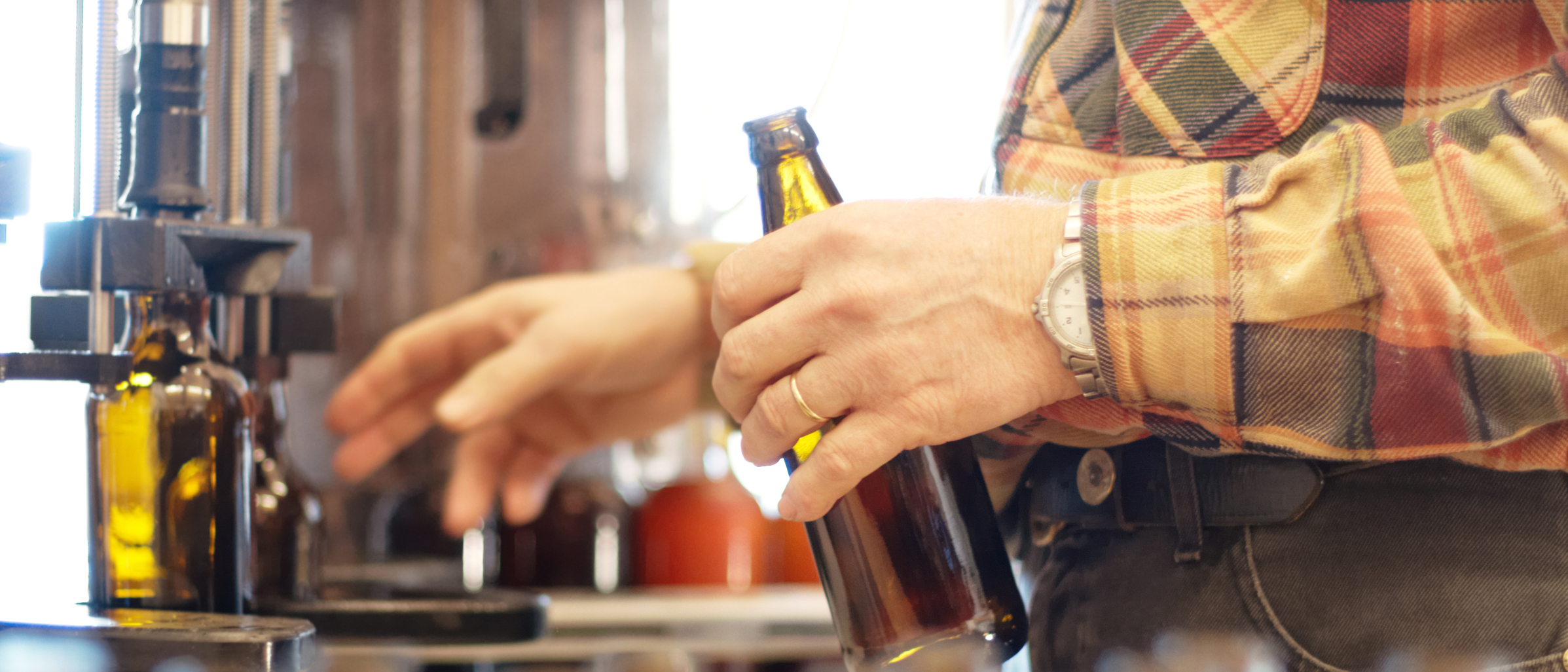Homegrown and handmade products are making a big splash in the food and beverage sector: there’s been a 70% increase in the number of licensed breweries over the last decade, and there’s more demand for new, creative takes on cuisine than ever before.
Of course, running a craft business can bring some challenges. As you juggle dozens of tasks to keep your company afloat, hidden risks can go unnoticed, and you could find yourself in hot water before you know it. That’s why you need to pinpoint your vulnerabilities now, and consider some smart steps that will help protect your artisanal operation.
There’s a lot riding on the supply chain
Dealing with specialized, hard-to-find, or otherwise niche ingredients can leave you more vulnerable to shifts and changes in supply than you might imagine. When you’re an expert in your craft but new to the business world, it can be especially difficult to pinpoint these weaknesses in your supply chain.
Regional sources
In many cases, locale plays a big role: if you’re a craft brewer who counts on hops grown in the Northwestern U.S., and a natural disaster disrupts that hop stock, do you have an alternative source to turn to? If not, your operation could be left in the lurch.
Exclusive ingredients
Regional supply is only one piece of the puzzle. Dealing with unique products can mean they’re difficult to restock or replace, especially when you pride yourself on the high quality of your ingredients. If it’s the hand-processed lavender honey that makes your homemade honey cake so special, the thought of using a squeezable supermarket brand as a stand-in probably makes you cringe.
Specialized equipment
Of course, many craft operations rely on specialized equipment, too, and when those machines break down, you can be at the mercy of overseas warehouses and hard-to-reach repair services. Imagine that a flood or fire damages your German-made printing machines, and you won’t be able to operate until replacements arrive from Europe – can your bank account handle the wait?
Quality control can be challenging
Your company is built on the quality of your product, and in an increasingly competitive craft goods market, there’s no room for error. The good news is that smaller companies may have a leg up when it comes to quality control; the bad news is that there may be more issues to worry about at each step of the way.
- Less machinery means more hands-on management. If your business rests on manual rather than mechanical processes, you may have more control over contamination risk, because you can clean your hands and tools between batches. On the other hand, it can be difficult to keep the process sterile without careful and consistent attention to hygiene.
- Greater opportunity for foreign contamination. Airborne substances and bacteria that are typically filtered through a factory’s industrial ventilation system may go unchecked in a more humble setup. While it’s not the case for every craft producer, contamination exposures can rise in the raw materials stage, making the product unusable or unsellable.
- Product recall can go smoothly – if you have a plan. Smaller craft operations do have a distinct advantage when it comes to product recall: since they can more easily monitor product placement, they can pull the product more quickly, if need be. However, if you let too much time pass before handling the situation, your reputation could take a big hit – and you probably can’t afford that.
The safety net is small
Reputation is a big part of succeeding as a small business (and growing into a bigger business). Craft food and beverage businesses often have a very slim margin for error when it comes to public relations issues, since resources are spread thin and recovery can be a long uphill battle.
There are two glaring problems that craft businesses can face when something goes wrong with product or supply:
- The brand takes a big hit.
Brand value is developed over years of dedication, innovation and careful positioning, but one misstep – like a contamination or mislabeling issue – can sully your brand, and may balloon into thousands of dollars of lost revenue. An event that seems fairly minor to you can become a major issue in the hands of the media, especially as social channels carry the story to hundreds of current and potential customers.
- Revenue runs dry.
If you do need to shut up shop while you recover, that business interruption can be too much to bear when you have only one location or a small indemnity period. Consider this: even a $30 million operation can go under if something happens to their site and product, since it can take months to get back to business and the company could lose contracts indefinitely.
An event that seems fairly minor to you can become a major issue in the hands of the media, especially as social channels carry the story to hundreds of current and potential customers.
What sort of coverage do you need?
It’s clear that risks loom large over craft producers. So, what can you do to protect the business you’ve worked so hard to build?
Fortunately, there are quite a few things you can do to protect your brewery, bakery or distillery from potentially disastrous events. First, think about how you’re currently managing your risks, and where you might be able to improve. Are there extra steps that can help with quality control, like an x-ray scanner to catch foreign material in finished products? You may not have to go that high-tech: a consultation with an expert risk management professional can help identify simple ways to improve your maintenance and quality control routine.
Next, consider how and where your products are sold. If you’re moving into wholesale or international markets, insurance extensions like ocean cargo coverage can come into play. The key is to speak with your broker not only about the changing business landscape for craft producers, but how your unique operation fits into that landscape.
Since there are so many sides to a food or beverage business, you’ll want a policy that responds to the risks at each step of the way. Northbridge Insurance offers a Manufacturer’s Choice policy, with specific coverages tailored to individual industries. For food and beverage producers, the Product Recall Expense, Negative Publicity and Motor Truck Cargo extensions can be particularly appealing. If you’re ready to get better craft coverage, contact your broker today!




